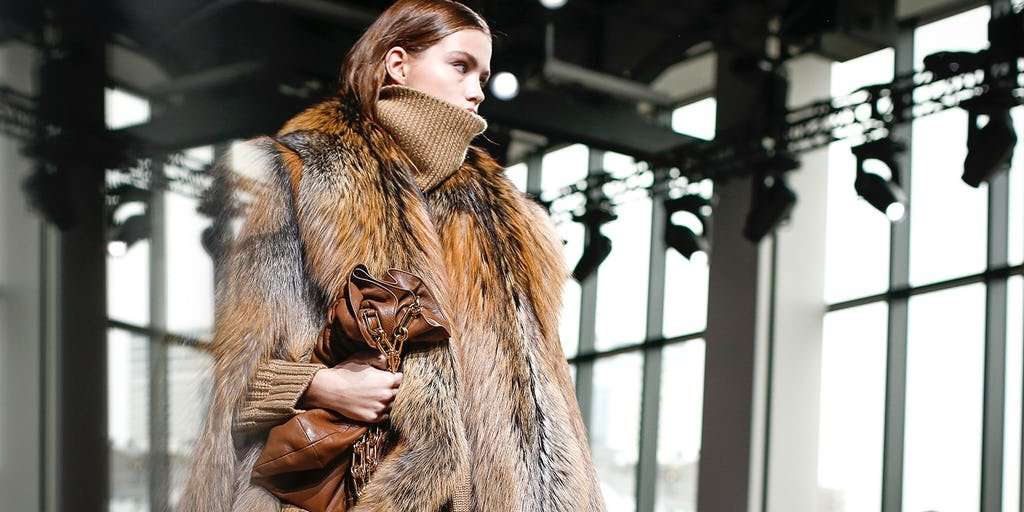LONDON, United Kingdom — Michael Kors is going fur-free. The American accessible luxury brand announced Friday that it will no longer use animal fur in its products, with production being phased out by the end of December 2018. The policy will apply companywide, including the Jimmy Choo brand, which Kors acquired in July.
The house, which has paraded models down the runway wearing luxurious fur coats in the past, joins a growing number of fashion companies looking at alternatives after coming under pressure from animal rights activists and changing consumer tastes.
“This decision marks a new chapter as our company continues to evolve its use of innovative materials,” said John D. Idol, Michael Kors’ chairman and chief executive, in a statement.
“Due to technological advances in fabrications, we now have the ability to create a luxe aesthetic using non-animal fur,” added designer Michael Kors. “We will showcase these new techniques in our upcoming runway show in February.”
Michael Kors’ move follows a similar initiative by Gucci, which in October pledged to drop fur from its collections, joining brands like Calvin Klein, Ralph Lauren, Tommy Hilfiger and Armani, which are all fur-free. Retailers including Selfridges and Yoox-Net-a-Porter also do not sell fur items.
Yet despite a number of brands announcing fur-free policies, the use of the material in collections still prevails, said Fur Information Council of America spokesperson Keith Kaplan: "Nearly 70 percent of major designers included fur in their Autumn/Winter 2017 collections."
“In the pre-Fall 2018 showings currently underway, fur continues to maintain a major presence, because innovative new techniques in fur processing and production allow designers a breadth of creative possibilities unmatched by any other textile,” said Kaplan. “Designers and consumers also recognise the value of fur as a natural and sustainable product, as well as the artisanal craft skills that make each fur piece unique, [which is] especially important as consumers become more aware of the environmental and social costs of mass-produced fast fashion."
“Killing animals for fur is archaic and inhumane,” said Wayne Pacelle, president and chief executive of the Humane Society of the United States (HSUS).
PJ Smith, the HSUS’s senior manager of fashion policy, who worked with the company on its fur-free policy, added: “Today’s consumers want fashionable, luxurious clothing and accessories that also align with their social values and Michael Kors’ fur-free move makes it a leader in that regard.”
The announcement comes after animal rights activists interrupted Kors' speech in June 2017, in a packed theatre at New York’s Metropolitan Museum of Art. Over 20 protestors took the stage and balcony, while chanting and playing the sounds of animals being killed for fur, shutting down the event for approximately ten minutes.
Protestors have also been targeting fashion brands at London Fashion Week over the industry’s continued use of fur in its collections.
Will Millennials Boost the Fur Trade?
Making Sense of the Anti-Fur Protests at London Fashion Week

Nagohsemaj on December 16th, 2017 at 05:02 UTC »
Because there are no animals with rose gold fur for them to make women's watches out of.
azzlejizzle on December 16th, 2017 at 04:43 UTC »
He then committed to double fur in ‘19
420cocklover on December 16th, 2017 at 02:11 UTC »
Take that furries!